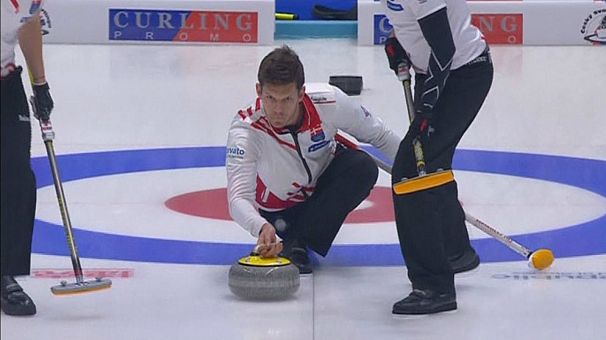Every curling stone that will be used in the Pyeonchang games will be sourced from Aisla Craig, and they cost €530 a pop.
Every curling stone that will be used at the Winter Olympics in South Korea will come from a tiny, uninhabited island in the UK.
Aisla Craig, which lies 16 kilometres off the western coast of Scotland, is home to the perfect combination of granite rock used to make the stones.
And just one stone yard, called Kays Curling, has the contract to make them.
"The boulders are taken from Ailsa Craig and a typical boulder weight is three to five tonnes,” says Kays Curling director Mark Callan.
The huge granite boulders are then sawed into slabs and cored to form a "cheese", the raw form of a curling stone.
“The cheese then goes through a multi-stage process to get to the finished [product],” says Callan.
Curling is a team sport where players propel a stone on a sheet of ice towards a bulls-eye. The opposing team can score points by knocking the stone away from the target.
The main body of the rocks are made from Ailsa Craig Common Green granite, which can strike another stone without breaking. The running surface is comprised of Blue Hone, a micro-granite that is well suited ice as it doesn’t chip or absorb moisture.
The stones look more like large, boiled sweets after being finely-moulded, sandblasted and polished —but they do not come cheap.
Each rock is worth at least £470 (€530) and could last for up to 50 years. But clients will have to brave a three-month waiting list before they can get their hands on one.
"In 1998, when curling first became an Olympic sport in Nagano in Japan, there were 25 countries in the world playing curling,” explains Callan.
“Now in 2018, as we head into Pyeongchang, there are 60 countries in the world. So in 20 years it has more than doubled — that is a huge explosion in the sport.”
Countries like Afghanistan and Mexico recently took up the sport, and the World Curling Federation is in talks with Iran, Iraq, Qatar and the United Arab Emirates to join.
“The sport shows every sign of increasing in popularity globally,” says Callan. “Which is good for business, good for us and good for the sport.”
The Pyeongchang Olympic curling competition will kick off on February 8, the day before the Games' opening ceremony, until February 25.












